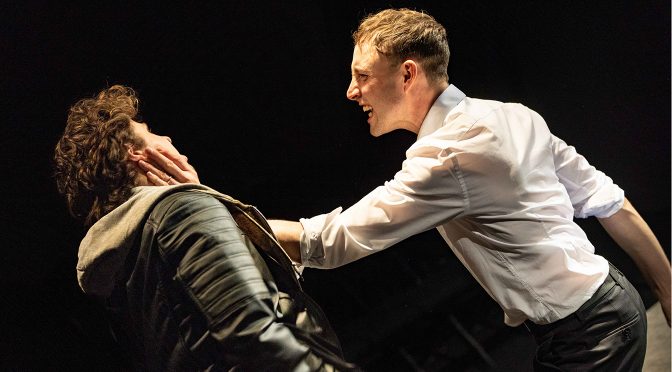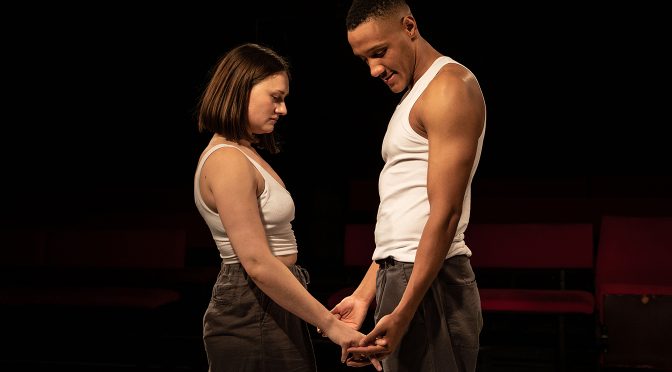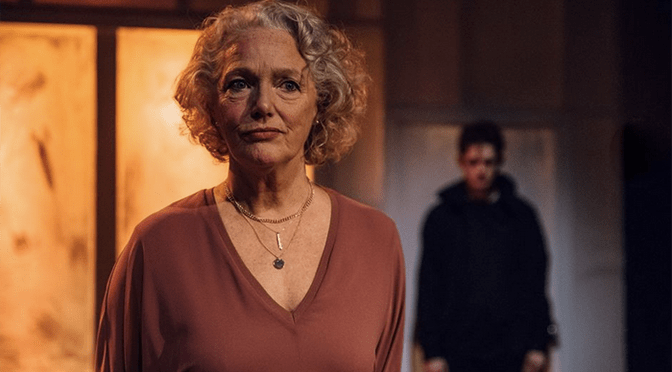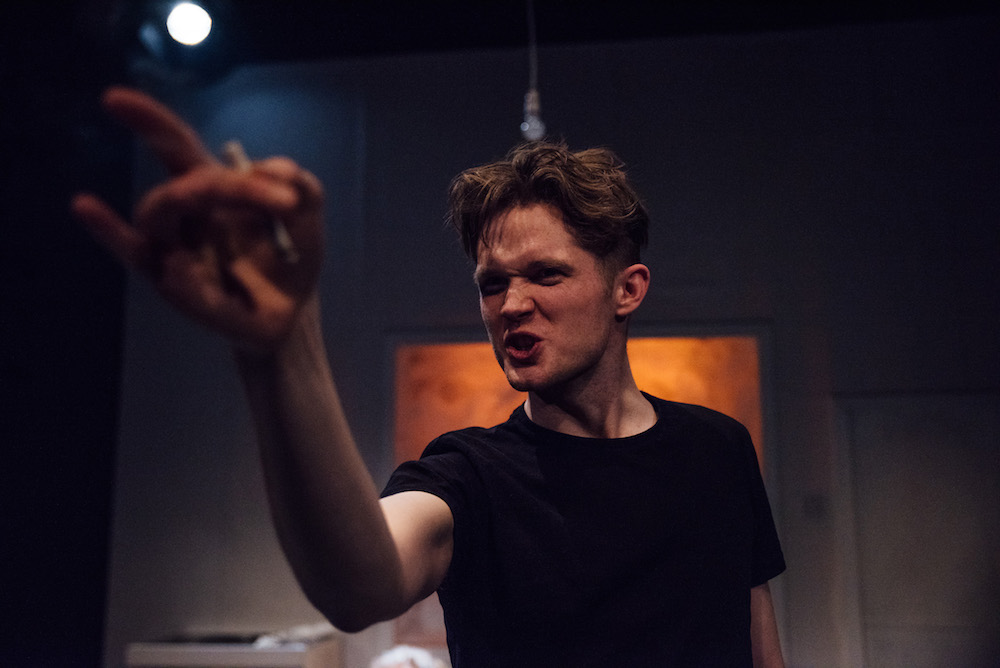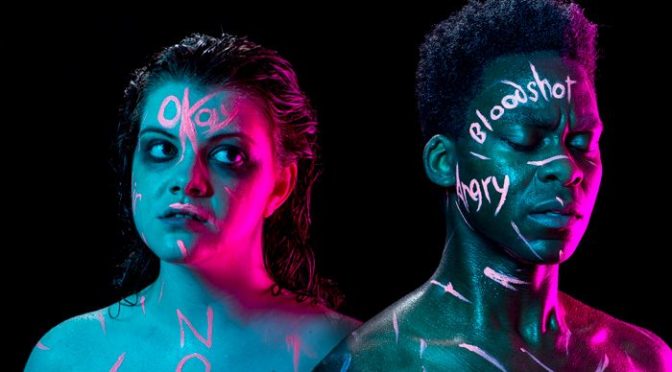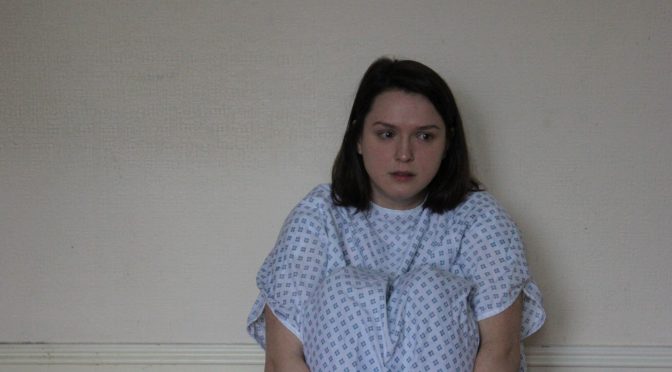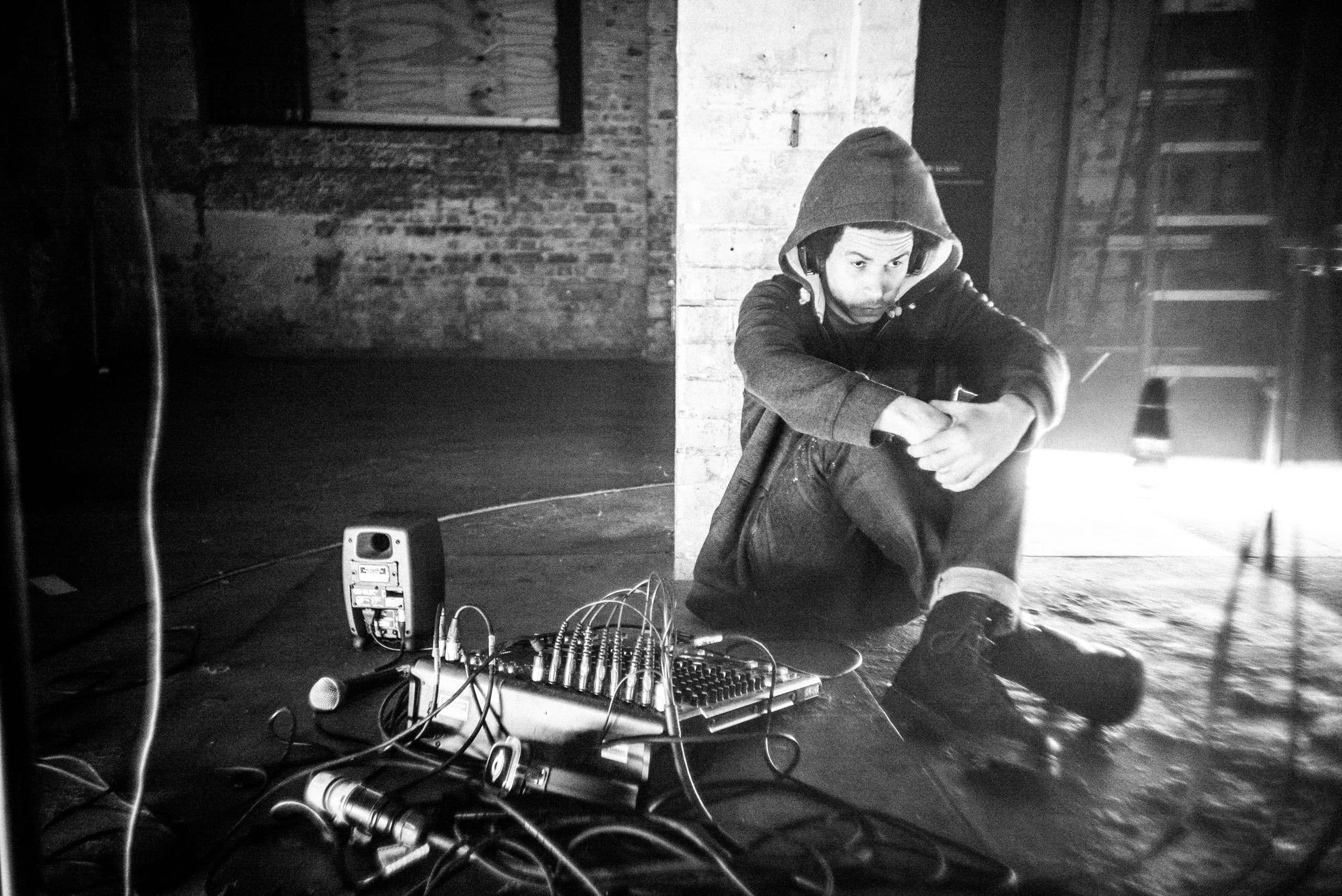This welcome revival, from Lidless Theatre, of Philip Ridley’s 2007 play confirms the author as a consistently brilliant playwright. The subject matter includes child abuse and depression – not easy to watch – but what chills and inspires is how Ridley balances accusations, denials and shifting stories while showing how trauma lives on, affecting lives and shaping futures.
Ridley’s is a harsh look at cruel subjects. A sense of paranoia, woven into every line, reflects how the character Steven’s life falls apart: his wife and mother seem against him, while his troubled younger brother makes cryptic demands about confessing… something. Ridley reveals plot as well as any thriller, and director Max Harrison takes his lead – the show is gripping.
The script boasts vivid images: this is a lucid world of violence, vermin and the unexplained. All the unsettling tropes are given time, as they should be – the language is astonishing. Nonetheless, the play is more of a conventional domestic drama than many Ridley offerings – a family putting on a show is clear. Harrison’s incisive approach is further confirmed with the piece’s black humour when the brothers fight or their mum lays down the law.
All the performers clearly admire the script and share Harrison’s vision. Katie Buchholz highlights the strength of her character, Debbie, who is Steven’s wife, adding to the play’s tension. Kacey Ainworth, as the boys’ mother, has strong comedy skills, while the way she ages from one scene to the next at the end of the play left me awe-struck.
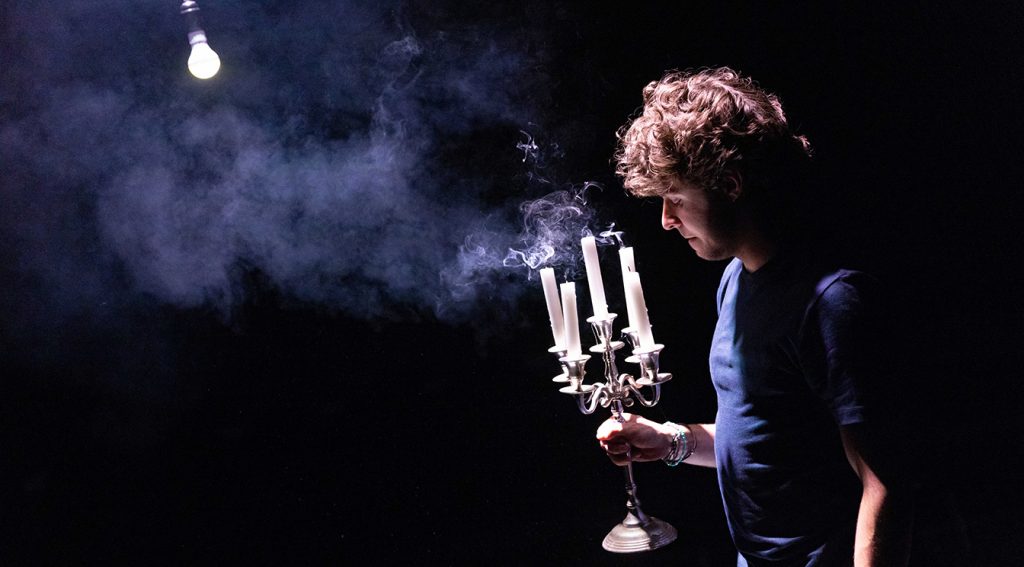
Joseph Potter takes the role of younger brother Barry, an alcoholic begging and threatening to unearth a past that has ruined his life, balancing sympathy and threat. As his performance in a previous play, Poltergeist, testifies, Potter is an expert at Ridley. He brings a manic energy that matches the writing marvellously.
Taking the lead is Ned Costello in the hugely demanding role of Steven. Understatement is the key to this magnificent performance – Steven’s cool demeanour can be funny but is the first step in our starting to suspect him. As questions mount, Costello shows cracks. It is remarkable that the character can be both sinister and seem weak. At the play’s powerful conclusion, Costello is deeply disturbing.
While scenes with family members are electric, Ridley is a master of the monologue (you can still check out a lockdown highlight – a whole series of fantastic shorts). Steven’s soliloquies are exquisite, brimming with ideas and originality, balancing simple story telling with complex themes. Showing Ridley’s skills with such steely precision secures a five-star rating: an excellent play and production.
Until 3 June 2023
Photos by Mark Senior

